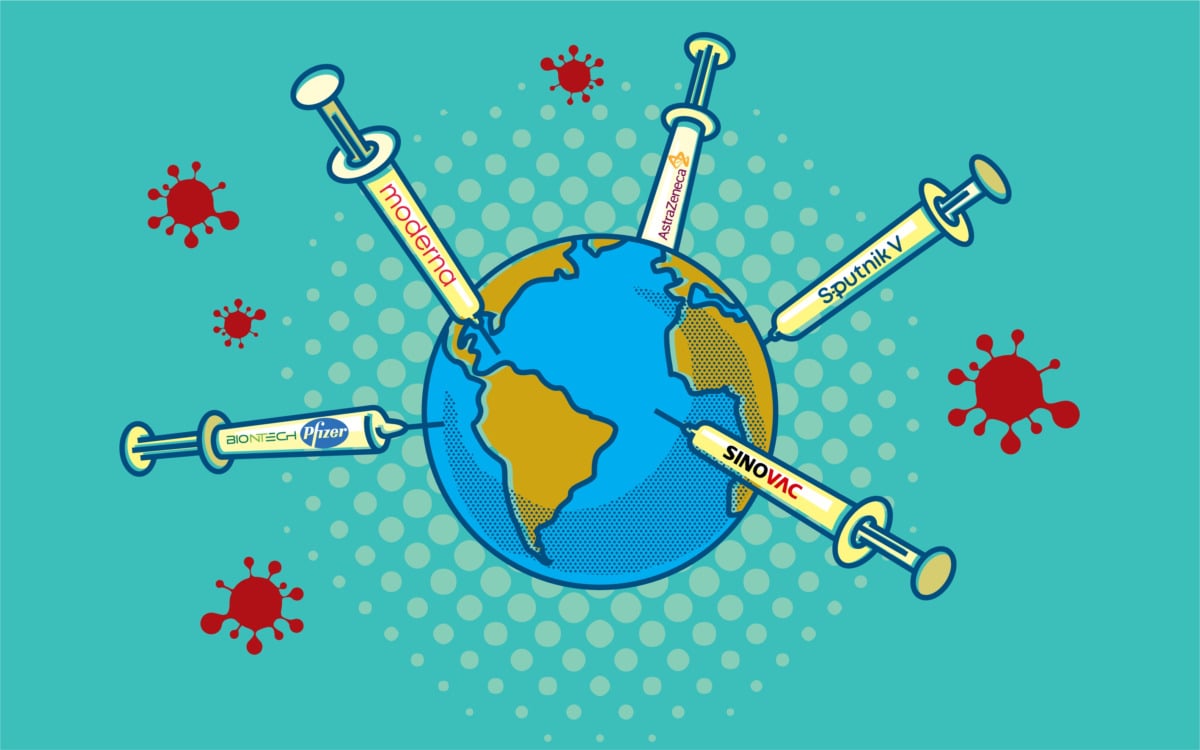Bispecific antibodies seem to be all the rage at the minute. Their ability to deliver targeted therapeutics to patients with a two-in-one approach by simultaneously binding to two different antigens or epitopes makes them an extremely attractive proposition to drug developers. This can be seen in the fact that there have been multiple big buyouts over the last few months by big pharma and big biotechs of bispecific antibody companies or assets.
There are also several new companies that have launched to develop bispecific antibodies, as well as more established biotechs that are currently working in the field. In this article, we take a look at six of these companies.
Adaptin Bio
- Adaptin Bio emerged from stealth in September 2024
- Lead candidate: APTN-101, targets EGFRvIII mutation and CD3 receptor on T cells
- APTN-101: set for phase 1 trial in malignant glioma
After emerging from stealth in September with the announcement that it had received U.S. Food and Drug Administration (FDA) clearance for its Investigational New Drug (IND) application for its lead program, Adaptin Bio is focused on developing precision cancer therapies with improved delivery to the brain and other tissues. Its lead program is called APTN-101 and is intended to treat glioblastoma – the most common and aggressive type of primary brain tumor.
APTN-101 is a brain bispecific T cell Engager (BRiTE) created with Adaptin’s proprietary platform technology, which utilizes a combination of specifically manipulated T cells with bispecific antibodies to enhance the transport of bispecific antibodies to tissues of interest, including the brain. The drug works by targeting both the EGFRvIII mutation – a variant commonly found in gliomas – and the CD3 receptor on T cells. This means that not only is the treatment localized and effective, but it also harnesses the body’s own defense mechanisms by activating the T cells and directing them to attack the tumor cells.
According to the company, APTN-101 has shown positive efficacy in preclinical studies, eliminating malignant glioma tumors across various aggressive orthotopic models. The IND clearance will now enable the company to initiate a phase 1 trial to investigate the drug candidate in patients who have been diagnosed with WHO Grade 4 malignant glioma (based on the World Health Organization (WHO)’s own grading system). Adaptin is also currently working on evaluating other BRiTE targets.
Akeso
- Collaboration with Summit Therapeutics to develop ivonescimab
- Ivonescimab approved for use in China in May for NSCLC patients
- Ivonescimab outperformed Keytruda in phase 3 trial
Chinese biotech company Akeso is focused on delivering drugs for global unmet clinical needs for major diseases. For this, the company has an integrated research and development (R&D) innovation system with a comprehensive end-to-end drug development platform, known as the ACE Platform, and a bispecific antibody drug development technology, known as Tetrabody. It also has a GMP-compliant manufacturing system and a commercialization system with an advanced operation mode.
The bispecific antibody company is currently working with Summit Therapeutics on the development of ivonescimab. The candidate, originally discovered by Akeso, combines the power of immunotherapy through a blockade of PD-1 with the anti-angiogenesis benefits of an anti-VEGF – two targets critical for tumor growth and survival – into a single molecule.
In May, the drug was approved for use in China in combination with chemotherapy in patients with epidermal growth factor receptor (EGFR)-mutated, locally advanced or metastatic non-squamous non-small cell lung cancer (NSCLC). It is also being investigated in multiple phase 3 trials, whereby recent data showed that the drug slashed the risk of disease progression or death by 49% compared with Merck’s blockbuster drug Keytruda in patients with previously untreated, PD-L1-positive NSCLC.
Altogether, Akeso is internally working on a pipeline of more than 50 assets in the fields of cancer, autoimmune disease, inflammation, metabolic disease, and other major diseases. Among them, 22 candidates have entered clinical trials, including 11 bispecific/multispecific antibodies and bispecific antibody-drug conjugates. Additionally, it has five drugs that are commercially available, and five drugs across seven indications that are currently under regulatory review for approval.
AP Biosciences
- Lead candidate: AP505 targets PD-L1 and VEGF, being tested in phase 1
- Second clinical candidate: AP203 targets PD-L1 and CD137, being tested in phase 1/2
- AP Biosciences raised $38 million series D in June 2024
AP Biosciences is committed to transforming cancer treatment through the development of cutting-edge bispecific antibodies. Enabled by the company’s proprietary Omni-Mab Discovery Library and T-CUBE T cell engager platforms, the company is creating “smarter” antibodies that precisely target multiple pathways, enhancing immune responses and providing new treatment possibilities.
AP Biosciences is currently advancing several bispecific antibodies through the clinic. Its lead candidate, called AP505, targets PD-L1 and VEGF. “By blocking PD-L1, AP505 removes the brakes from the immune system, allowing T cells to attack cancer cells more effectively,” explained Jeng Her, chief executive officer (CEO) of AP Biosciences, in an interview with Labiotech in September. “Meanwhile, targeting VEGF, disrupts the blood supply to tumors, starving it of the nutrients it needs to grow.”
The bispecific antibody company’s second clinical candidate is called AP203, which binds to PD-L1 while also engaging CD137. Her explained that by targeting PD-L1, AP203 prevents T cell suppression and enhances immune system detection of cancer cells. Meanwhile, activation of CD137 promotes T cell proliferation and survival, leading to a more robust and sustained anti-tumor response. Her also mentioned that AP203 has a unique ability to activate T cells conditionally – only when both targets are present – thereby focusing its effects within the tumor microenvironment. This amplifies the immune response and minimizes the risk of systemic toxicity, such as the cytokine release syndrome.
AP505 is currently in a phase 1 trial in China for solid tumors, with preliminary data expected by the end of this year, and AP203 is currently being explored in a phase 1/2 trial in Taiwan targeting NSCLC, head and neck squamous cell carcinoma (HNSCC), and esophageal cancer. AP Biosciences also managed to raise $38 million in series D funding in June 2024.
Candid Therapeutics
- Candid Therapeutics launched in September 2024 with $370 million
- Candid acquired Vignette Bio and TCR 2004 along with lead bispecific assets
- Candid filing IND applications for assets for treatment of autoimmune diseases
Candid Therapeutics launched in September 2024 with one of the biggest private investments of the month after it managed to raise an impressive $370 million in capital. The company is developing T cell engager antibodies that can deplete specific B lymphocyte cell populations for the treatment of autoimmune diseases. It has an ambitious aim of becoming the first company to bring these novel therapies to the market.
The bispecific antibody company’s launch also came with the news of the acquisition of two biotech companies, Vignette Bio and TRC 2004. Consequently, Candid has also acquired these companies’ lead assets, CND106 and CND261, respectively. CND106 targets B-cell maturation antigen, while CND261 binds to CD20. Both then also bind to CD3 on the surface of T cells.
Both CND106 and CND261 have completed phase 1 dose escalation studies with combined data from over 130 oncology patients. Candid is now focused on filing IND applications for the two candidates so that the company can study them in autoimmune diseases. Ken Song, chairman, president, and chief executive officer (CEO) of Candid, told Fierce Biotech in September 2024 that he hopes they will have clinical data on at least the drugs’ safety by next year.
Summit Therapeutics
- Lead candidate: ivonescimab, engages PD-1 and VEGF
- Summit entered into collaboration and license agreement with Akeso in 2022
- Summit raised $235 million in September 2024
Summit Therapeutics’ mission is to resolve serious, unmet medical needs and is particularly committed to making a significant difference in the quality and potential duration of life for oncology patients facing difficult diagnoses. The company’s lead candidate is ivonescimab, which (as mentioned previously) is being developed in partnership with Akeso. The two companies entered into a collaboration and license agreement in December 2022, and Summit’s license territories include the U.S., Canada, Europe, Japan, and Latin America.
As mentioned in the section about Akeso, ivonescimab simultaneously engages both PD-1 and VEGF. Currently being tested in phase 3 trials, it is the most advanced PD-1/VEGF bispecific antibody in clinical development in Summit’s aforementioned license territories. Globally, more than 1,800 have been treated with ivonescimab across all clinical trials to date.
The drug recently outperformed Merck’s Keytruda, slashing the risk of disease progression or death by 49% compared with Keytruda in patients with previously untreated, PD-L1-positive NSCLC. The drug was also approved in China in May in combination with chemotherapy in patients with EGFR-mutated, locally advanced or metastatic non-squamous NSCLC.
In September 2024, Summit raised $235 million. It said that it intends to use the proceeds from this to advance, in part, the clinical development of ivonescimab, including in non-small cell lung cancer and in settings outside of lung cancer, which may include, but is not limited to, colorectal cancer, and triple-negative breast cancer, in addition to working capital needs and general corporate purposes.
Zenas BioPharma
- Lead candidate: obexelimab, binds to proteins CD19 and FcγRIIb
- Obexelimab being tested in phase 3 trial for IgG4-related disease
- Zenas BioPharma raised $200 million in May and $225 million in September
Focused on immunology-based therapies, Zenas BioPharma is working on the development of its lead bispecific antibody candidate obexelimab for the treatment of various immunology and inflammation (I&I) diseases. The company acquired the drug from Xencor in 2021. The candidate is designed to deplete B cells by simultaneously binding to the proteins CD19 and FcγRIIb, which are broadly present across B cell lineage. According to the company, the co-engagement of these targets results in the suppression of B cell activity.
Obexelimab is currently being tested in a phase 3 trial to treat an inflammatory condition known as immunoglobulin G4 (IgG4)-related disease. Furthermore, the company is in the process of enrolling patients in phase 2 trials in multiple sclerosis (MS), systemic lupus erythematosus, and warm autoimmune hemolytic anemia.
Furthermore, in May 2024, Zenas BioPharma announced that it had bagged $200 million in a series C round, before also raising $225 million in an initial public offering (IPO) in September. The proceeds from both of these rounds will help the company to further advance obexelimab.
Big buyouts for bispecific antibody companies
As mentioned previously, there have been multiple deals made by big pharma and biotech companies to acquire bispecific antibody companies or assets in recent months. For example, earlier this month, Merck paid $588 million upfront to secure global rights to LaNova Medicines’ PD-1xVEGF bispecific antibody – a decision sparked by the success of Summit and Akeso’s bispecific – and BioNTech announced it was buying Biotheus for $800 million, in turn gaining another PD-1xVEGF bispecific antibody with a similar design to Summit and Akeso’s ivonescimab. GSK also paid a large sum of $300 million at the end of October 2024 to acquire Chimagen Bioscience’s bispecific antibody that it believes has the potential to treat autoimmune diseases like lupus.
Consequently, the bispecific antibody market is expected to see rapid growth. According to Grand View Research, the global market size was valued at $5.73 billion in 2022, and is expected to grow at a compound annual growth rate (CAGR) of 44% from 2023 to 2030. Grand View Research stated that the major driving factors behind this growth are thought to be rising incidences of chronic diseases such as cancer, autoimmune disorders, and infectious diseases, rising demand for targeted therapies, and advancements in antibody engineering technologies.
Are you interested in antibody therapy R&D?
Download Inpart’s latest report, exploring the current research challenges, R&D trends, and breakthrough innovations in the field.






















No Comments
Leave a comment Cancel